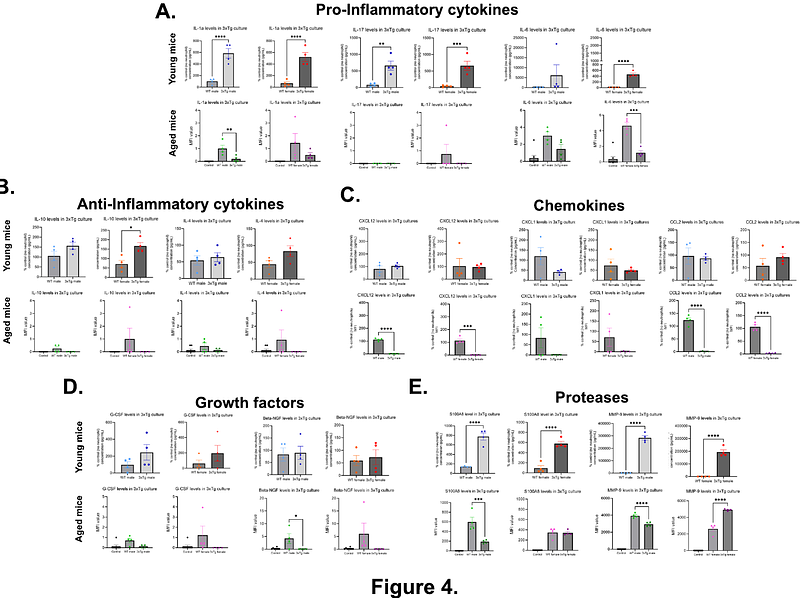Familial Alzheimers disease mutations impair neutrophil phagocytosis and release of immune modulators

Familial Alzheimers disease mutations impair neutrophil phagocytosis and release of immune modulators
Kays, M.; Kelly, A.; McGinnis, F.; Woods, C.; Brown, C.; Coulibaly, A.
AbstractRecent reports show that neutrophil activity plays a role in the cognitive decline associated with Alzheimers Disease (AD). Previous reports show that both amyloid precursor protein and Tau can be found in neutrophils. As such, the goal of this study was to determine if the presence of AD mutations can change neutrophils function. Using a primary neuronal culture model, generated from 3xTg perinatal mice, we characterize the effect of AD mutation on neutrophils ability to remove pathogenic amyloid beta (Abeta) 42, phagocytose debris, and release immune modulators (cytokines, chemokines, growth factors, and neutrophil proteases). Our data show that primary neuronal cultures from 3xTg mice gradually increase the release of Abeta (40 and 42) as the culture ages. To address our experimental goals, Isolated neutrophils were added to the primary neuronal cultures. Culture media was collected and assessed for Abeta and immune modulator levels. Culture plates were fixed, stained, and assessed for neutrophil phagocytosis. AD neutrophils were isolated from 3xTg mice and the WT neutrophils from C57Bl6 mice. Neutrophils were isolated from young male/female mice (3-6 months of age) and aged male/female mice (16-18 months of age) of both genotypes. Our results show that the presence of AD mutation impairs the ability of neutrophils from young mice to remove Abeta. Their ability to phagocytose cellular debris is also impaired in a sex-dependent manner. Furthermore, the presence of AD mutations leads to an increased release of pro-inflammatory molecules by neutrophils from young mice. Neutrophils from aged WT mice increase the levels of Abeta; in culture, while those from aged 3xTg mice lead to a decrease in Abeta levels. This was supported by the decrease in Abeta; phagocytosis by neutrophils from aged WT mice. Neutrophils from aged 3xTg mice show a significant decrease in release of pro-inflammatory cytokines and proteases when compared to those of the aged WT mice. These data show that the presence of AD mutations impact neutrophil function and response in both young and old mice.